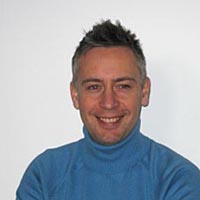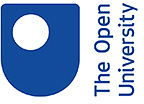You are here
- Home
- Cohort profiles
- Profiles 2013 (2)
Profiles 2013 (2)
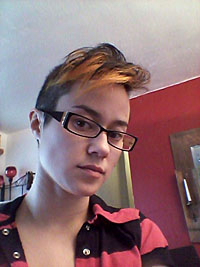 Puck Fletcher
Puck Fletcher
English, University of Sussex
I’m currently in the final stages of a PhD in seventeenth-century English and History of Science. When finished, I hope to work in the heritage sector on exhibitions and publications for museums, libraries, and galleries. I have some experience of working on exhibitions and educational materials and am keen to develop my knowledge of this sort of engagement, as well as to learn more widely about other ways in which intellectual and academic subjects are brought to the public. I hope to come away with a greater knowledge of the current thinking on and challenges facing public engagement, and a greater sense of the relations between the different areas and institutions residing under that wide umbrella of heritage, culture, education, and academia. I also look forward to meeting other people interested in bringing forth knowledge from the cloisters and ivory towers and making it accessible for everyone who wants it.
https://sussex.academia.edu/PuckFletcher
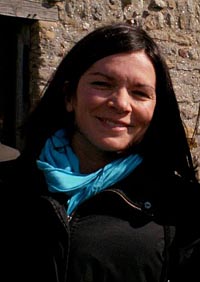 Joanna Frew
Joanna Frew
History, University of Essex
After studying history and international politics, I worked in a campaigning organisation for 10 years, writing about and training people on global development issues. Coming back to academia and history, I am still passionate about social issues. In my current research I am interested in how ‘normal’ people absorbed contemporary ideas of empire and became involved in it, or challenged it, and how these everyday actions contributed to larger social and political change. The value of public engagement in history lies in its potential to empower people to create change through an understanding of the changes others made and how they affected their societies.
History is often regarded as just ‘story’ rather than as something that can provide important understanding for today. I hope that this course will help me gain skills in communicating the importance of history to different sections of society, and how learning opportunities and activities can be developed for different types of groups. I also hope to gain more skills in communication and the presentation of academic ideas to a wide audience.
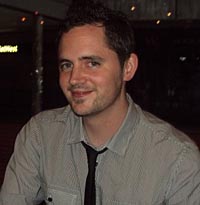 Mark Fryers
Mark Fryers
Film, Television and Media Studies, University of East Anglia
It has always been my intention that any research I partake in has value and relevance to the wider public outside of academia. I believe that the Arts and Humanities, in particular, offers great scope for public engagement and that there is a greater opportunity to open up a reciprocal dialogue and forge a better understanding and appreciation of the value of research in our field.
This, I feel, is of particular importance in the current climate of spending cuts in the Higher Education sector, and arts and humanities are often one of the first to suffer. This is in part due to the perceived value of such research, in opposition to other fields which have a greater public profile. If we can begin collectively to actively engage with the community, then we can help to protect our research and hopefully make the process more amenable for future generations. My particular research considers the conception of identity and community, so is especially relevant to such public engagement.
Increased interaction with the media is crucial to this and I hope that my particular skills and understandings in this area will be enhanced by the ‘Becoming a Public Intellectual’ initiative.
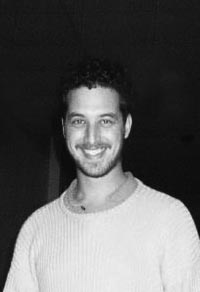 Jack Hartnell
Jack Hartnell
Art History, The Courtauld Institute of Art
My research as a medieval art historian has for a long time been underpinned by an interest in the ways that my ideas and objects can engage a broader public. At its core my work focuses on the relationship between two fields, art and medicine, considering the parallels of investigative practice and physical manipulation between the two disciplines both past and present. The public space is, I believe, a natural home for such interdisciplinary discussion, unbound by the often overly firm disciplinary limits of academia. As such, it is in this area and the forums associated with it – galleries, museums, TV, radio, etc. – that I see my research progressing and developing.
As importantly, the programme appeals for reasons of a more philosophical type. Over the past three years I have organised a series of conferences and workshops at the Courtauld Institute entitled ‘Performing Art History’, sessions that critically examined the practice of investigating art history on TV, Radio, the Internet, and elsewhere. Thus, I hope that the programme will help to get a better understanding of the mindsets and methods behind such public academic practices, contributing to the formation of historiographical discussions around these mediums that have thus far remained somewhat absent from the discipline.
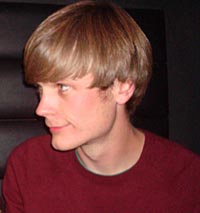 David Hodge
David Hodge
Art History, University of Essex
I am currently studying for a PhD in art history, specialising in 1960s American art, but with a strong interest in contemporary art. I am also passionate about disseminating my work outside the academia. Contemporary art is notoriously divisive, but can be extremely rewarding. There is currently little press coverage which sets out to give people the tools they need to think about what's going on in art today. As a teacher, as well as a researcher, I believe in helping people to acquire these skills, more than just giving them information.
Over the past 2 years I have been working as a freelance documentary maker on BBC Farsi's equivalent of the Culture Show, making short films on topics from contemporary artists like Yayoi Kusama and Gerhard Richter to events like the Venice Biennale. My aim in these projects is to provide viewers with an idea of how to look at art, and to understand its place in the world, so that they can continue this interest themselves. I am sure there will be many opportunities to think about that approach on this course, and to consider incorporating it into other practices, and I greatly look forward to it.
